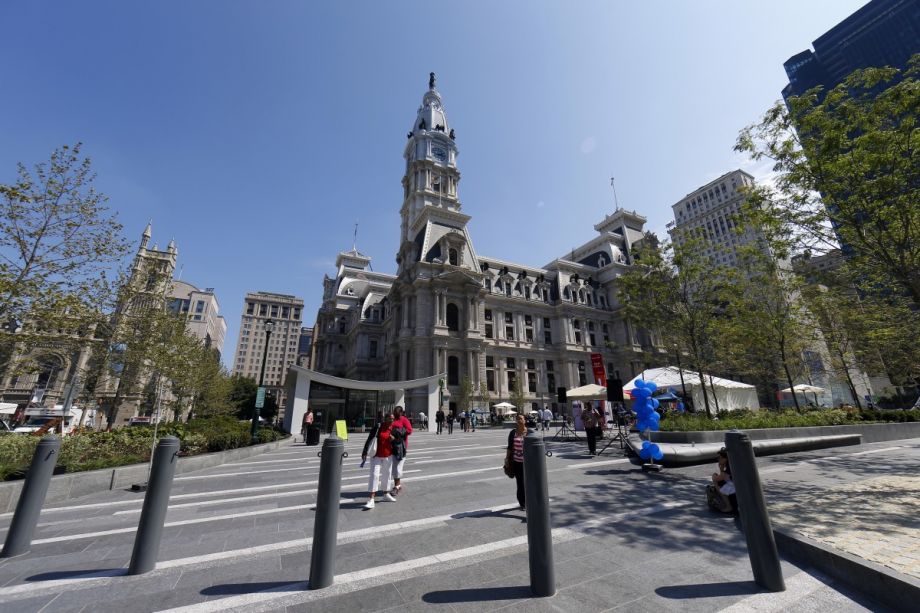Campaigning candidates often think and talk big in order to win votes, and Pennsylvania State Senator Anthony H. Williams, who’s seeking the Democratic nod in the Philadelphia mayoral race, has proposed a municipal bank as part of his economic platform.
Meant to appeal to entrepreneurs, this public bank would leverage the City of Philadelphia’s funds in order to extend credit to local businesses through regional banks, credit unions and other financial institutions. (It wouldn’t be a brick-and-mortar retail institution.)
“We have the ability to have a great economy,” says Williams, “but it’s housed primarily around Center City. We’ve also seen it grow around universities, so it demonstrates that we have the reliability and the money in neighborhoods to actually turn over dollars. It’s just never been targeted.”
Williams’ proposed public bank would aim public money at entrepreneurs looking to open businesses on stagnant commercial corridors in Philadelphia neighborhoods.
“We also have older and more established businesses on those corridors who have not grown in a generation, because they have not had access to capital,” says Williams. “They pay their bills. They pay their taxes. They are good stewards. They just have not had the ability to increase themselves, because they have not had access to capital.”
Although rare today, public banks have a rich history — with a direct lineage leading from Philadelphia. The first public bank in America was founded in Philly in 1780. A contemporary example of a public bank is the Bank of North Dakota, the only state-run bank in the country.
But Williams’ idea has had its detractors from the start. In an article on the Philadelphia Citizen, former president of the William Penn Foundation and founding CEO of the community development financial institution The Reinvestment Fund Jeremy Nowak details why there’s no substantial U.S. public banking tradition and that, “it is doubtful that this is going to change at least as it relates to consumer services or small business lending.”
“There are a lot of constraints in public management that make it very, very difficult to run a bank,” Nowak tells me. He’s more a fan of the idea that existing socially motivated, quasi-public lending institutions and economic development corporations have more regulatory separation, better capacity to utilize research data and stronger private market discipline than the city government does.
There’s also the City of Philadelphia’s track record in other areas.
“Maybe if I were younger I would be more flippant about this, but I’m resisting that,” says Nowak. “The quick way people would do it would be to say, ‘Come on guys, you can hardly run this, how could you run a bank?’ … But I’d like to resist that, because it’s far too dismissive and this is a real idea, so let’s talk about it. I think that what Tony [Williams] did — and I like Tony a lot — is he said, ‘Well, there’s this big credit gap here we ought to be looking at.’ And that credit gap might be key to economic growth and people’s livelihoods.”
Specifically, Nowak says that he has a hunch that one of the pain points holding down small businesses in Philadelphia is the need for early-stage capital in the form of equity investments of a smaller size than larger equity firms are providing in a more conservative post-recession lending environment. (A recent article in Governing suggests wielding the power and strategies of venture capital and mutual funds could help create companies that could invest in distressed cities. Denver’s Jumpstart plan is another roadmap cities could be paying attention to.)
But Williams says that the existing, local lending institutions that Nowak suggests could be picking up the slack are not getting the job done currently, so why would they do better in the future? “If those programs were working, then we would be capitalizing business corridors. We don’t,” he responds.
“The government has not supported them significantly enough to have the amount of capital that [the City of Philadelphia] could,” continues Williams, “if we took 10 or 20 percent of our holdings and directed them to the marketplace.”
He also resists the idea that Philly’s government does not have the capacity or wherewithal to take on the management of an innovative public bank: “They think it’s a department like L&I and it’s not — it’s a transfer of assets.”
The Equity Factor is made possible with the support of the Surdna Foundation.

Alexis Stephens was Next City’s 2014-2015 equitable cities fellow. She’s written about housing, pop culture, global music subcultures, and more for publications like Shelterforce, Rolling Stone, SPIN, and MTV Iggy. She has a B.A. in urban studies from Barnard College and an M.S. in historic preservation from the University of Pennsylvania.









